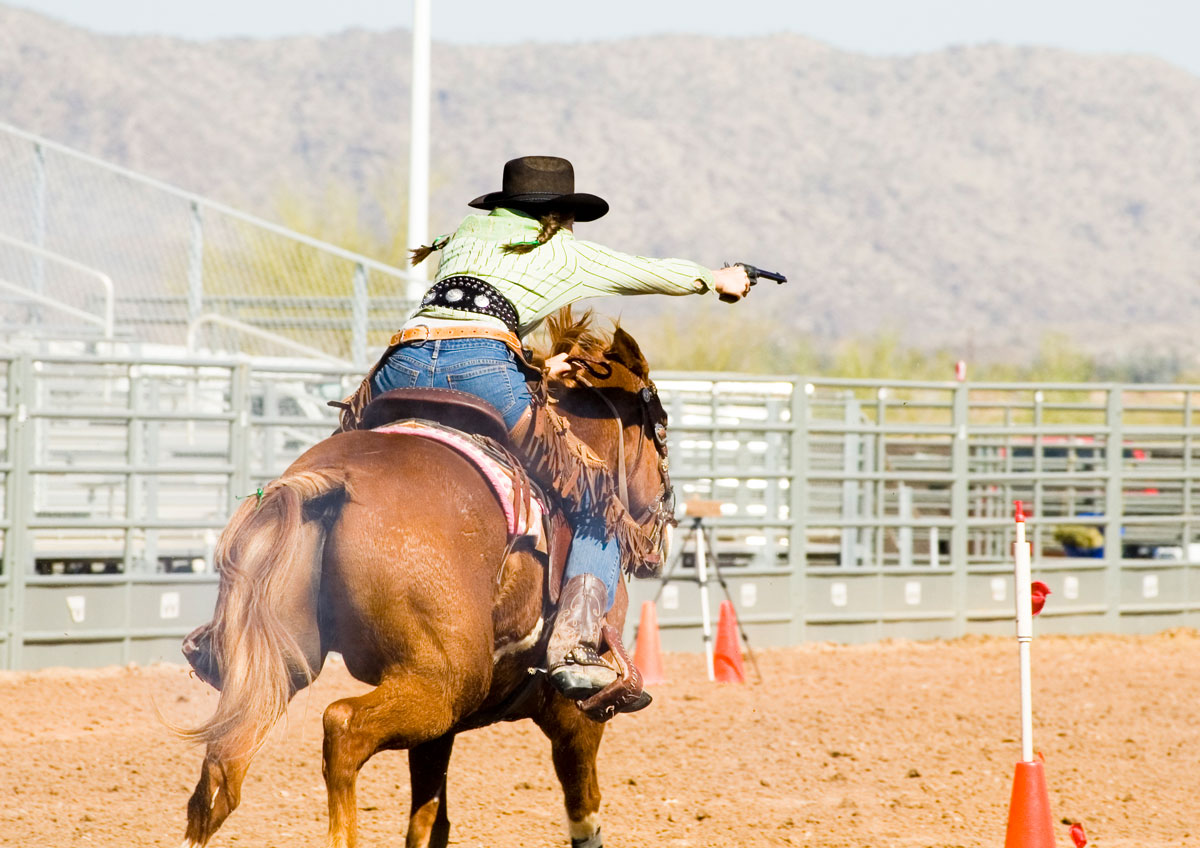
An inborn prey mentality makes horses more sensitive to loud, unexpected noises as a signal of danger. With training and time, most horses learn to become less reactive to unexpected noises. Some horses will always remain on high alert, but through careful, controlled repetition, you can help your horse get comfortable with loud noises.
Capitan Lisa Rakes is the mounted patrol commander at the Kentucky Horse Park and a former lead horse trainer for the Lexington, Kentucky, mounted police. That group was the top mounted unit in the country multiple times, and Rakes was the top mounted officer several times over the years.
She has spent a majority of her policing career desensitizing horses for unpredictable situations and sounds. The first thing she recommends is introducing noise in a controlled way by starting from a distance and slowly get closer.
“In training, try to have a noise that can be repeated until you see that little bit of relaxing, then stop,” she advised. “The learning happens when the noise stops.” s
Whatever you do, let the horse move his feet. If you force a horse to stand still while he is afraid, he will likely buck or rear. However, you should control how he moves his feet. If you can put his feet to work, even in a small circle, that will keep his mind on you and less on distractions.
“They are seeking comfort, and when they relax and stop moving their feet and the noise stops, then that can be their reward,” she said.
She cautions against hurrying or rushing the process, which could make a horse more fearful instead of less. All horses are different and learn at different rates. She often compares horses to children. Kids in school learn at different rates and speeds. Horses are the same, so the owner must act as the parent to the horse and instill confidence to gain success, according to Rakes.
“Folks often believe that once you introduce a horse to something and you desensitize him at that given moment in time, that he should be good for life. That just isn’t the case,” stated Rakes. “It takes repetitions and practice—all in a good way.”


